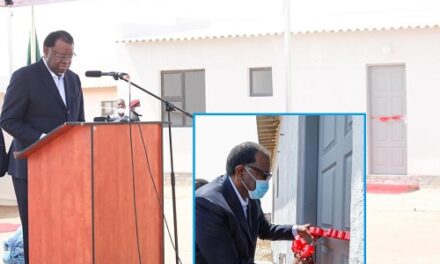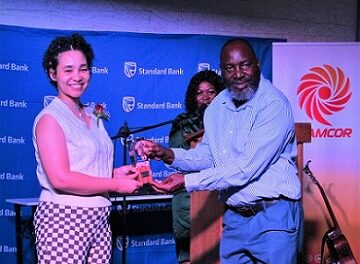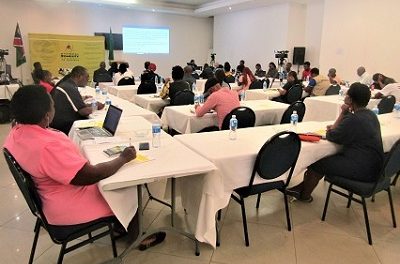The mentorship impact survey conducted by Agribank recently shows a significant improvement in the incomes of farmers who benefited from Agribank’s mentorship and training scheme.
According to the study, prior to the mentorship 96% of mentees recorded an annual income below N$100,000 from their farms, and after the introduction of the mentorship programme, 39% of Agribank’s mentees indicated an increase in their earnings, above or equal to N$100,000 per annum.
This is mainly due to improvement in their farm management as well as marketing skills.
“The study shows that, overall, mentees value the mentorship service as shown by the mentee rating of the service between excellent (72%) and good (21%). Moreover, 92% expressed willingness to pay for mentorship services albeit at an affordable rate,” said Agribank’s manager for marketing and communication Mr Rino Muranda in a statement.
Muranda said that over the mentorship period mentees had witnessed improvements in record keeping and farm management skills as expressed by mentees. In addition, mentees experienced improved calving, lambing, kidding, offtake, and overall declines in mortality rates across all livestock categories, with the exception of one ERFP mentee.
“Fulltime mentees have expressed greater effects of mentorship with more significant improvements expressed in reproduction and mortality rates. Mentees also reported to have witnessed higher farm incomes with higher farm income increases reported by commercial mentees, followed by resettlement, SSCF, AALS and communal mentees,” said Muranda.
The extent of mentee arrears had also reduced over the mentorship period.
Other findings of the study indicated that the drive towards diversification would require mentorship to equally impart skills to mentees in diversified enterprises. And that diversification of the current mentor pool to include crop and poultry enterprises will be crucial.
The need for an increase in physical or virtual training events focusing on diversified enterprises and input substitution such as fodder production will be required too.
The study suggested that mentorship should ideally be offered to clients that are full time farmers as mentorship requires time, dedication and the application of skills learnt. Moreover, results show greater effects of mentorship on fulltime clients.
“The study reveals that innovative modalities to deliver mentorship services will be required to cater for eventualities and restrictive limitations such as those posed by COVID-19. It also suggested the introduction of hotline services to assist farmers,” Muranda said.
In the photo: Agribank officials visiting two small livestock farmers who received management and marketing mentorship.







